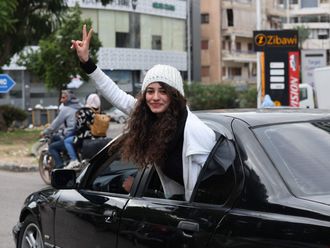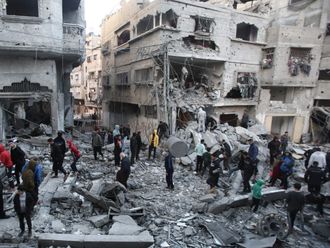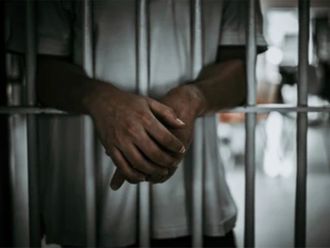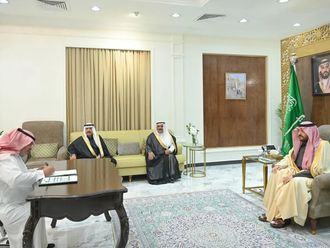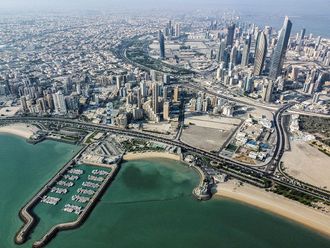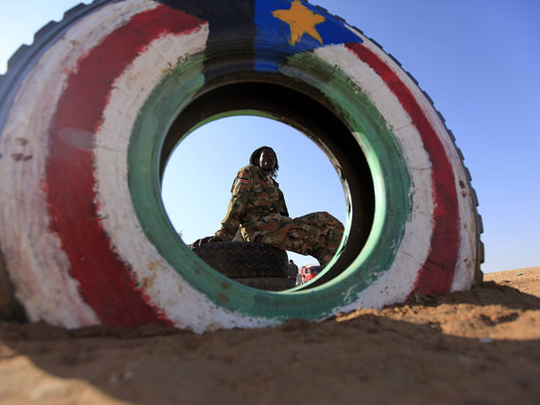
Juba: Exhausted poll workers posted the first preliminary results from Southern Sudan's weeklong independence referendum on Sunday, and an Associated Press count of a small sampling of the returns showed a huge vote for secession.
Sudan's south ended its independence vote Saturday, a vote most everyone believes will split Africa's largest country in two at the divide between Sudan's Muslim north and Christian and animist south. Poll workers counted throughout the night to post results.
An AP review of results at 10 sites in the south's capital of Juba found that almost 96 per cent of the almost 30,000 ballots cast were for secession. About 3 per cent were for unity and the rest were invalid.
That's only a small sample of the approximately 3.2 million votes cast, but almost all observers believe the south voted for secession. The referendum needs to pass by a simple majority.
At a church service Sunday, Southern Sudan President Salva Kiir - a stoic man not known for showing emotion - smiled, gently clapped and swayed during the musical portions of the service.
"We offer a prayer of gratitude for the peaceful voting of the referendum," Kiir said. "We present these votes to God, who will bring change through his people of this country."
The independence referendum was promised to the south in a 2005 peace deal that ended more than two decades of north-south civil war in which 2 million people were killed.
If the process stays on track, Southern Sudan is due to become the world's newest country in July.
UN Secretary-General Ban Ki-moon praised voters for "the display of wisdom, patience, and peaceful determination that has characterized the voting over the last week."
Mohammad Ebrahim Khalil, the chairman of the south's referendum commission, said 83 per cent of those registered in the south and 53 per cent of those registered in the north had cast their votes. He also cited a 91 per cent turnout rate among Sudanese voters in eight other countries. Officials had said there were some 3.9 million registered voters.
Khalil said he believed the referendum would be judged as "a good result by any international standard," noting that the commission set up the vote in four months.
"We are very tired and very hungry," said Lonyik Roberts, 31, the lead poll worker at one of the Juba stations, who said poll workers have had little to eat the past 24 hours. "We continued counting throughout the night. We are waiting now for the referendum commission to collect the ballots."
Sudan's ruling party in the north said Friday it was ready to accept southern independence. Border demarcation, oil rights and the status of the contested region of Abyei still have to be negotiated.
Gonda Keffa, a poll worker at Juba University's polling site, said his team began counting ballots at 8pm on Saturday night and finished at 5:30am Sunday
"We worked throughout the night," said Keffa, 24. "That's why you can see we are just feeling giddy."


